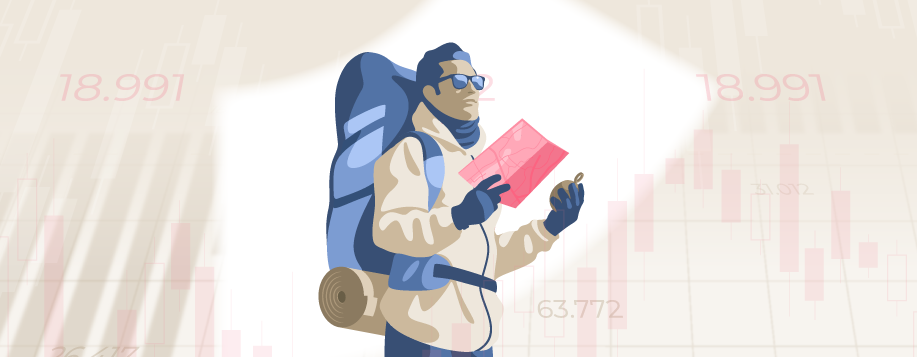When setting up a savings account, trying to figure out what solution is right for you can be confusing. If you want to start saving in a more tax efficient way, ISAs are a great place to start. But what exactly are ISAs, and how do they work?
In general, ISAs, or Individual Savings Accounts, are untaxed personal savings accounts with a legal maximum of how much money you can pay into them each year. There are many different types of ISA, so choosing the best ISAs for you can get tricky!
The main types of ISAs are
Comparison Table of ISA Types
| ISA Type | Risk Level | Access Conditions | Annual Limit | Tax Benefits | Suitable For |
| Cash ISA | Low | Flexible/Fixed-term | £20,000 | Tax-free interest | Risk-averse savers |
| Stocks and Shares ISA | Medium-High | Market-driven | £20,000 | Tax-free gains | Long-term investors |
| Innovative Finance ISA | High | Peer-to-peer loans | £20,000 | Tax-free returns | Higher-risk lenders |
| Lifetime ISA | Low-Medium | Age 60 or property | £4,000 | 25% government bonus | Home buyers, retirement planners |
| Junior ISA | Low-Medium | Locked until 18 | £9,000 | Tax-free savings | Parents saving for children |
While you can set up as many different types of ISAs accounts as you like, there is a maximum amount of money that you are allowed to pay in each year. For the 2024-2025 tax year, the maximum combined contribution to all your ISAs remains at £20,000. This means you can split your allowance across different types of ISAs but cannot exceed this total.
Let’s take a look at how each of the ISAs differs from one another.
| ❓ What is an ISA? | ISAs, or Individual Savings Accounts, are untaxed personal savings accounts that have a legal maximum of how much money you are allowed to pay into them each year. |
| 🤔 What is a Personal Allowance? | In the UK, the standard Personal Allowance is the amount of income that individuals do not pay tax on, equal to £12,570 annually. |
| 🇬🇧 Who can open an ISA? | To open an ISA, you must be a resident of the UK and at least 18 years old (16 for a cash ISA) and under 40 for a Lifetime ISA |
Cash ISAs
This type of ISA is most similar to a traditional savings account: you pay money into the account, and the money in that account earns interest at a predetermined rate, and you don’t have to pay taxes on the interest that you accrue over time. When comparing ISAs vs Savings Accounts, a savings account is generally considered the safer option since the performance of these ISAs isn’t subject to swings in the market. However, they are susceptible to the risk of decreased value due to inflation if the inflation rate outgrows the interest rate of the Cash ISA.
Stocks and shares ISAs
As opposed to steadily accruing interest over time, stocks and shares ISAs, sometimes called investment ISAs, invest the money that you pay into it in things like shares, bonds, and property. The capital gains that you make through these ISAs aren’t taxed, but their return depends on the performance of the stocks and shares in the market. So be aware that there is a greater risk of not seeing a return on your investment compared to cash ISAs. Still, there is also a greater chance of making higher returns, especially in the long term if you reinvest any profits made from investments – after all, history favours the bold! Also, choosing an ISA as an investment account depends on your financial goals, as a SIPP or ISA can be used for retirement.
Innovative finance ISAs
What makes innovative finance ISAs so innovative is that the mechanism for generating returns differs completely from cash and stock and shares ISAs. In an innovative finance ISA, with the money you pay into the account, you act as the direct lender to approved individuals or businesses, earning untaxed returns through a fixed interest rate over a set period of time. The direct relationship between the lender and the borrower, without the bank as the middleman, provides more advantageous conditions for both parties.
Of course, there is also a great deal of risk involved in innovative finance ISAs, since the borrower can default on repayments and the money you pay into the account isn’t protected by compensation from the Financial Services Compensation Scheme. Before choosing to set up an innovative finance ISA, make sure you speak with a financial advisor to make sure you understand the risks involved in this type of savings account.
Lifetime ISAs
Lifetime ISAs are something of a combination of cash ISAs and stock and share ISAs, but are aimed specifically at young adults looking to open an ISA with advantageous conditions – in fact, only people aged 18 or over but under 40 can open a lifetime ISA. This type of savings account is meant to help you along as you save for retirement or for putting down a deposit on your first home. It is particularly advantageous since the government contributes an additional 25% to all investments made in this kind of ISA each month. This is what type of ISA a help to buy is. The maximum that you can pay into this kind of ISA is £4,000 per year, and any gains that you make through interest or capital gains in this account are untaxed.
While they are quite advantageous for those looking to boost the long-term return of their savings, only young adults can open them, and you can pay into the account until you are 50, and the funds can be withdrawn from the account only when you reach 60 or when you go to buy your first house. If you decide to withdraw your money from the account before you turn 60 or for purposes other than those specified in the terms of the account, you will be charged 25% of what you withdraw.
Junior ISA
As the name suggests, Junior ISAs are savings accounts developed for parents or legal guardians who are looking for a tax efficient way to start saving for children under the age of 16. Junior ISAs can be structured according to the Cash ISA scheme or that of the Stocks and Shares ISA, and just as with the other types of ISAs, there is a yearly allowance for how much you and your family are able to pay into the account. The annual allowance for the 2024 – 2025 tax year is £9,000.
Similarly to Lifetime ISAs, Junior ISAs also have limitations on who can open the account. When the funds can be accessed – only the child’s parent or legal guardian may open the account for them (although other family members and friends can also pay into the account). The funds may only be accessed by the child once they legally become an adult. Once they turn 18, JISA account holders can choose to withdraw the money or transfer the ISA into any one of the other ISAs designed for adults.
Suppose you decide to open a JISA for your child. In that case, it’s important to explain to them how the account works and that the capital gains or interest potentially generated by the account are not taxed. Thus it is in their own best financial interest to keep the money in an ISA until they really need to use it.
Who can open an ISA
The specific requirements to open an ISA depend on the type of account, though in general, you must be a resident in the UK and at least 18 years old (16 for a cash ISA) and under 40 for a Lifetime ISA.
Please note that the annual ISA allowance in a tax year is £20,000. The ISA allowance for a cash ISA, stocks and share ISA, and innovative finance ISA is £20,000. You can save up £20,000 in one of each type of ISA listed prior or split the amount across the different types of ISAs. However, the maximum you can save in a lifetimes ISA is 4,000, and £9,000 for a JISA.
Pros of opening an ISA
There are several advantages of having an ISA account. They include:
Withdrawals are tax free: There are no penalties for withdrawing funds from either cash or investments ISAs. However, some experts recommend not taking early withdrawals from a stocks & shares ISA. For cash ISA withdrawals, withdrawing from an easy-access cash ISA account is tax free, but they come with different interest rates and withdrawal limits. However, if you’re investing through a fixed rate cash ISA, you won’t be able to access the cash as it’s locked.
ISAs are transferrable: You can transfer money from one type of ISA to another or combine ISA transfers. You can also switch ISA providers to take advantage of better interest rates. You can transfer funds held in a cash ISA into a stocks and shares ISA, and vice versa. However, some ISA accounts can not be transferred into other types of ISA. Each provider has its own transfer limits and when they charge interest, so always read the terms and conditions.
Tax free returns: One of the biggest benefits of an ISA is not having to worry about paying taxes on your returns. All profits made through an ISA investment, whether from dividends, bond yields, or price appreciation, will be exempted from income tax or capital gains tax.
Wide investment choices: ISAs offer a wide spectrum of investment options for investors seeking an alternative to buying into traditional investments. An ISA investment account can contain stocks and shares, bonds, ETFs, derivatives, cash, and real estate. Investors with a high interest in taking greater risks should opt for investments such as stocks, gilts, bonds and even cash. The ISA flexibility makes it easier for investors to tailor their investment strategy
No upper age limits with ISAs: Individuals aged 18 years old or older can open an Individual Savings Account (ISA); cash ISA, stocks and share ISA, innovative finance ISA, and lifetime ISA. However, parents or legal guardians can open an JISA for their children and hand them over once their children are 16 years old. Pensioners can also open an ISA account and reap the tax benefits as an ISA has no upper age limit.
ISA inheritance: If your spouse died after April 2018, you could inherit their ISA allowance through an ‘inherited Isa allowance’. Inherited Isa allowance is a one-off payment that is that’s equivalent to the value of the ISA upon spousal death or the value of the ISA account when it was closed.
FAQ
How many ISAs can one person open?
You can open as many different types of ISAs as you want, but there is a maximum amount of money you can pay into them each year. For the 2024-2025 tax year, you can pay up to £20,000 combined into any of your ISAs.
What is the best type of ISA to open?
Stocks and shares ISAs are a good way to accrue wealth in a tax efficient manner over time, since the capital gains that you make through these ISAs aren’t taxed.
What is an innovative finance ISA?
In innovative finance ISAs, the money paid into the account is lent to approved individuals or businesses, earning untaxed returns through a fixed interest rate over a set period of time.
*As with all investing, financial instruments involve inherent risks, including loss of capital, market fluctuations and liquidity risk. Past performance is no guarantee of future results. It is important to consider your risk tolerance and investment objectives before proceeding.





